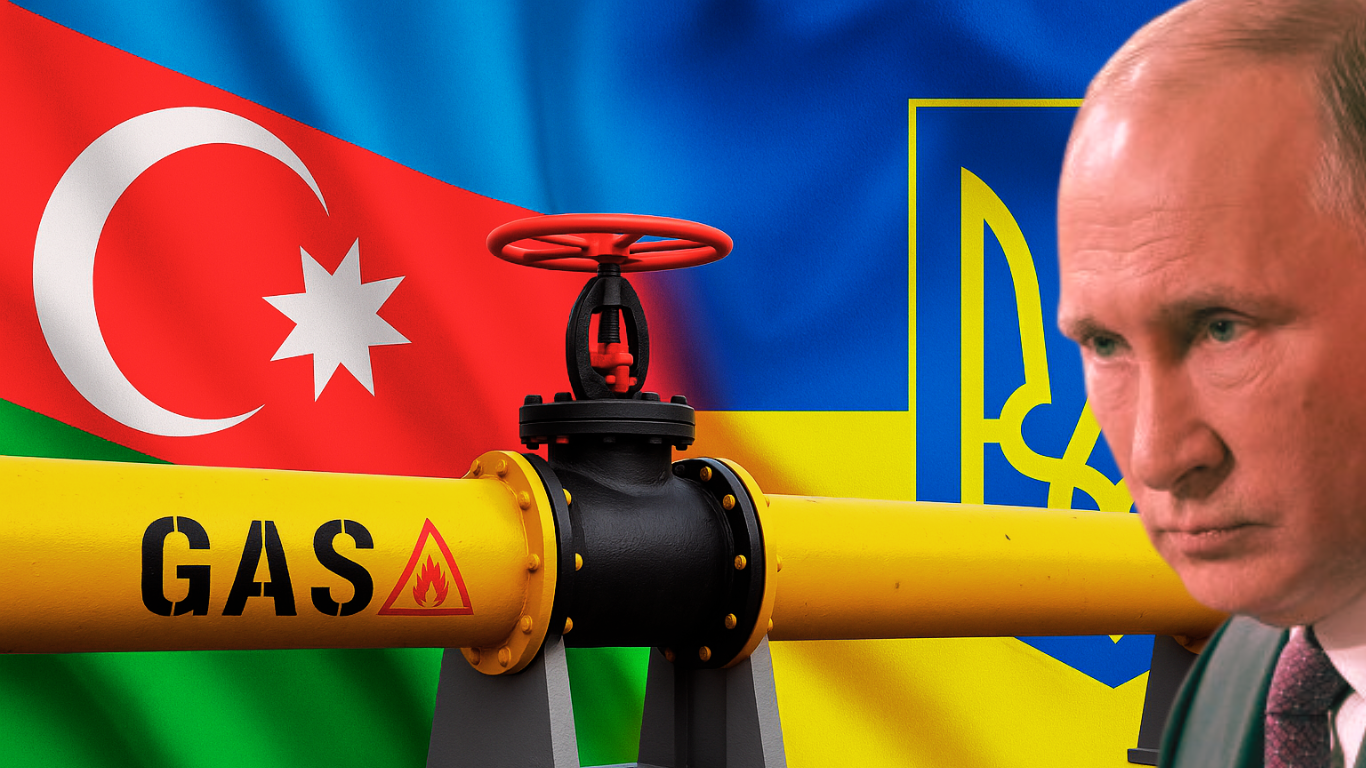The Russian military carried out another wave of strikes against Ukraine on August 17.
According to the Ukrainian Air Force, the attacks targeted infrastructure in Odesa, including a terminal of the “Nova Pochta” company and a SOCAR gas station, resulting in a powerful explosion in the city. No official confirmation has yet been provided regarding the scale of the damage or potential casualties.
This incident marks the second time in August that Russian forces have attacked SOCAR facilities. On August 7–8, drones struck a SOCAR oil depot in the Odesa region, triggering an explosion in a pipeline, a large fire, and injuries to four employees. Following that attack, Azerbaijan dispatched an ambulance from Baku and allocated $2 million in humanitarian aid to Ukraine. Earlier, Russian forces had also targeted an energy facility supplying Azerbaijani gas to Ukraine.
This is already the third targeted Russian attack in recent weeks on critical infrastructure in Ukraine linked to Azerbaijan. A strike was carried out on the Orlivka gas distribution station, located near the border with Romania. The station is a vital part of the Trans-Balkan gas pipeline, through which Azerbaijani gas is expected to be supplied to Ukraine.
Baku has warned that if Russia persists in its aggressive stance toward Azerbaijani interests, it may lift its arms embargo on Ukraine and begin supplying weapons from its own stockpiles.
Azerbaijan has also indicated that Moscow’s actions could prompt a reassessment of its bilateral relationship. The attack on SOCAR’s facility in Odesa is a concerning sign and should not be seen as an isolated event. The Kremlin is demonstrating a readiness to use force even against countries with which it has formal agreements, such as the “Declaration on Allied Interaction.” This behavior erodes the little trust that remains, especially as recent months have seen growing strains between Moscow and Baku.
Azerbaijan has been consistently providing humanitarian aid to Ukraine since 2022. Notable examples of Azerbaijan's humanitarian efforts include the reconstruction of the Zarifa Aliyeva Lyceum in Irpin, which was destroyed during the conflict, as well as the ongoing rehabilitation of Ukrainian children in Azerbaijan—children who have experienced the traumatic effects of war firsthand.
Despite these initiatives, Russian propaganda has expressed persistent discontent with Azerbaijan's actions, particularly regarding the restoration of energy infrastructure and the delivery of much-needed equipment. This propaganda has included attacks on Azerbaijani-owned facilities in Ukraine as a form of retaliation.
This demonstrates that Russia is confusing energy geostrategy with war geostrategy. By targeting energy infrastructure, it is both sending a message to Azerbaijan and slightly weakening Ukraine. Attacking Azerbaijan directly would provide a legitimate reason for war; therefore, a more cunning approach was taken. These were not random incidents but rather a clear signal of Russia's discontent, evident in the damage inflicted by these assaults.
But now, the strikes are deliberately targeting Azerbaijani-linked infrastructure. This does not look like a coincidence. Previously, a missile strike landed near the Azerbaijani embassy in Ukraine, followed by another near SOCAR’s office. Now, the gas transportation system is under attack. Analysts note that Moscow’s repeated strikes on SOCAR’s infrastructure are unlikely to be accidental. They argue that such attacks not only undermine Ukraine’s energy security but also aim to weaken the strategic energy cooperation between Baku and Kyiv.
Commenting on the issue, Ukrainian military expert Vadim Tryukhan said that Russia's drone attack on SOCAR's assets in the Ukrainian territory might be assessed from two perspectives. In parallel with its destructive policy towards Ukraine, especially its energy resources, Moscow is exerting pressure against Baku’s political will in a way.
“Russia has adopted a strategy of constant terrorist attacks aimed at destroying civilian infrastructure in Ukraine, including housing. They pay little attention to the origins of investments in specific facilities or which countries may suffer as a result of these attacks. Regarding SOCAR, it is clear that Russia wants to test the commitment of the Azerbaijani leadership. After the initial strike on SOCAR facilities, Baku issued a strong statement warning that if Russia continued to damage infrastructure built in Ukraine with Azerbaijani investments, Azerbaijan would reconsider its military-technical cooperation with Ukraine. They indicated that they might supply weapons available in Azerbaijan to support the Ukrainian defense forces.
Now, the official Baku faces a crucial moment in terms of making a significant decision. Will it limit itself to statements, or will it decide to act, stating that since our warnings went unheeded, it will supply weapons to Ukraine? Ukraine is extremely interested in this possibility, and any change in Azerbaijan's policy on this matter would be welcomed. As for the shelling of civilian infrastructure, including the facility at the SOCAR company, these acts are considered war crimes, further perpetrated by the Russian army. There is no room for doubt on this issue, and we must take action accordingly.”

